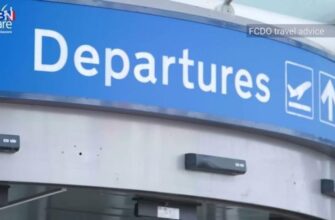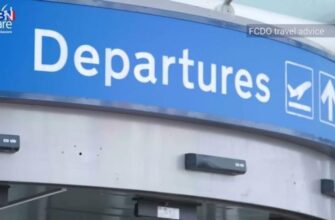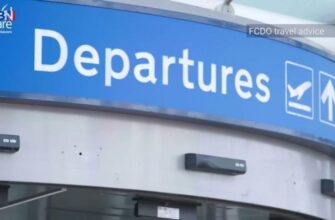Flight delays remain a persistent challenge for travelers worldwide; however, certain airports consistently demonstrate higher rates of disruption than others. Currently, Gatwick Airport is recognized as the most problematic in the United Kingdom, with departing flights routinely delayed by an average of over 23 minutes throughout 2024.
As the UK’s second busiest airport, Gatwick handles more than 40 million passengers annually and serves a diverse roster of nearly 60 airlines – including British Airways, Jet2, easyJet, Ryanair, and TUI. This significant volume creates considerable potential for widespread disruption, particularly during peak periods.
The situation is further complicated by ongoing “Easter holiday mayhem” at Gatwick, exacerbated by recent strike action affecting thousands of employees. A representative from Gatwick cited “continued air traffic control restrictions across Europe” as a primary contributor to these delays.
Despite the challenges, the airport is proactively addressing the issue with a comprehensive strategy designed to improve on-time performance in 2025. “Together with our airlines,” stated a Gatwick spokesperson, “we’ve implemented a robust plan focused on further enhancements.”
There has been some positive movement; the average delay of 23 minutes and 18 seconds represents a reduction compared to the previous year’s figure of nearly 27 minutes. Transport Secretary Heidi Alexander publicly expressed support for Gatwick’s expansion plans, contingent upon adjustments to the project timeline – with a response deadline set for April 24th.
AirportsUK offered a cautiously optimistic assessment: “It is positive that the data demonstrates continuing improvements in delay times as aviation recovers from the impacts of the pandemic.”
Beyond Gatwick, other UK airports also exhibit varying levels of punctuality. Birmingham Airport consistently ranks second with an average delay exceeding 21 minutes, followed closely by Manchester Airport at 20 minutes. Belfast City (George Best) airport maintains the best performance in the nation, boasting typical delays of less than 12 minutes – a record achieved for the second consecutive year.
Here’s a ranked list of UK airports based on average delay time per departing flight:
- Gatwick: 23 minutes and 18 seconds
- Birmingham: 21 minutes and 18 seconds
- Manchester: 20 minutes
- Stansted: 19 minutes and 36 seconds
- Teesside: 19 minutes and six seconds
- Exeter: 19 minutes
- Edinburgh: 18 minutes and six seconds
- Bournemouth: 17 minutes and 48 seconds
- Luton: 17 minutes and 42 seconds
- Cardiff, Wales: 17 minutes and 36 seconds
- Heathrow: 17 minutes and 24 seconds
- Newcastle: 17 minutes and 24 seconds
- Bristol: 17 minutes and six seconds
- Southampton: 16 minutes and 24 seconds
- Leeds Bradford: 16 minutes
- Glasgow: 15 minutes and 12 seconds
- London City: 15 minutes and six seconds
- Belfast International: 14 minutes and 42 seconds
- Aberdeen: 13 minutes and 18 seconds
- Liverpool (John Lennon): 12 minutes and 42 seconds
- East Midlands International: 12 minutes and 30 seconds
- Belfast City (George Best): 11 minutes and 36 seconds
Experts highlight the significant emotional impact of flight delays. “Passengers who save throughout the year for a trip feel their time and investment aren’t being respected,” stated Julia Lo Bue-Said, chief executive of Advantage Travel Partnership. “Passengers expect and deserve not to spend hours stuck in terminals with little information or support.”
Regulations dictate that airlines must provide assistance to delayed passengers, including food, drink, communication facilities, and overnight accommodation if delays extend beyond a certain period. Furthermore, passengers may be entitled to compensation of up to £520 for delays caused by the airline’s fault – such as aircraft malfunctions or crew illness. However, disruptions attributed to “extraordinary circumstances,” like air traffic control issues, are typically exempt from compensation claims.






